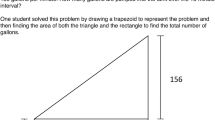Abstract
COGNITIVE STYLE is a “potent learner characteristic that can have a significant effect on learner achievement” (Hayes & Allinson, 1997, p. 185). However, further exploration is required before links among cognitive style, performance, and other aspects of learners’ experience are more clearly understood. This study explores the relationship among cognitive style, performance, gender, and communication in a particular educational setting. The sample consisted of 145 new computer-systems students at the beginning of a program of study in their first year of higher education. Participants completed the “Cognitive Style Index” (Allinson & Hayes, 1996) and provided additional demographic data, including gender and recent academic performance. Qualitative information about learning expectations was also sought. Findings show a significant relationship between performance and cognitive style. Students whose cognitive style scores indicate a preference for analytical thinking are significantly more likely to have entered university with above average performance scores than those with a preference for intuition. A significant relationship was also identified between cognitive style and types of qualitative statements used to describe learning expectations. The educational implications of these findings are explored and discussed.
Similar content being viewed by others
References
Adey, P., Fairbrother, R., & William, D. (1999).Learning styles and strategies, a review of the research. London: King’s College London School of Education.
Allinson, C.W., & Hayes, J. (1996). The cognitive style index: A measure of intuition-analysis for organizational research.Journal of Management Studies, 33 (1) 119–136.
Allinson, C.W., & Hayes, J. (1999). Cross-national differences in cognitive style: Implications for management.Journal of Human Resource Management, 5(2), 33–59.
Au, M.K. (1997). Cognitive style as a factor influencing performance of business students.Journal of Managerial Psychology, 12(3), 243–251.
Barnett, R. (1992).Higher education: A critical business. Buckingham: Open University Press.
Belbin, R.M. (1981).Management teams: Why they succeed or fail. Oxford: Butterworth-Heinemann.
Bernstein, B. (1971).Class, codes and control. London: Routledge and Kegan Paul.
Block, J. (1995).IQ versus emotional intelligence. Unpublished manuscript. University of California at Berkeley.
Brown, R.B., & McCartney, S. (1995). Competence is not enough: Meta competence and education. Accounting Education, 4(1), 43–53.
Burke, L., & Miller, M.K. (1999). Taking the mystery out of intuitive decision making.Academy of Management Executive, 13(4), 91–100.
Collins, R. (1981). On the microfoundations of macrosociology.American Journal of Sociology, 5, 984–1013.
Department of Education (1999).Statistical report. Dublin: Government Publications Office.
Doucette, P.A., Kelleher, W.E., Murphy, H.J., & Young, J.D. (1998). Cognitive style and law students in Eastern Canada: Preliminary findings.College Student Journal, 32, 206–214.
Fry, H., Ketteridge, S., & Marshall, S. (1999).A handbook for teaching and learning in higher education. London: Kogan Page.
Gardner, H. (1983).Frames of mind: The theory of multiple intelligences. New York: Basic Books.
Goleman, D. (1996).Emotional intelligence. London: Bloomsbury.
Habermas, J. (1991).Moral consciousness and communicative action. Cambridge, MA: MIT Press.
Hayes, J., & Allinson, C. (1997). Learning styles and development in work settings: Lessons from educational research.Educational Development, 17(1 & 2), 185–193.
Kelly, C. (1990). Using 4MAT in law school.Educational Leadership, 48(2), 40–41.
Khatri, N., & Ng, H.A. (2000). The role of intuition in strategic decision making.Human Relations, 53, 57–77.
Kirton, M.J. (1989). Adaptors and innovators at work. In Kirton, M.J., (Ed.).Adaptors and Innovators: Styles of Creativity and Problem Solving (pp. 59–82). London: Routledge.
Kogan, N. (1980). Cognitive styles and reading performance.Bulletin of the Orton Society, 30, 63–78.
Lynch, K. (1999).Equality in Education. Dublin: Gill and MacMillan.
Margerison, C., & Kakabadse, A. (1984).How American chief executives succeed. New York: AMA Publications.
Miller, A. (1987). Cognitive styles: an integrated model.Educational Psychology, 7, 251–268.
Mintzberg, H. (1994).The rise and fall of strategic planning. Hemel Hempstead: Prentice Hall.
Murphy, H.J., & Doucette, P.A. (1997). The group embedded figures test: Undergraduate business concentration and analytical skills.Journal of Education for Business, 73(1), 39–44.
Myers, I.B. (1993).Gifts differing. Palo Alto, CA: Consulting Psychologists Press.
Parikh, J., Neubauer, F., & Lank, A.G. (1994).Intuition: The new frontier of management. Oxford: Blackwell.
Sadler-Smith, E., Spicer, D.P., & Tsang, F. (2000). Validity of the cognitive style index: Replication and extension.British Journal of Management, 11, 175–181.
Schein, E. (1993). On dialogue, culture and organizational learning.Organizational Dynamics, 22, 40–51.
Sowa, C. (1992). Understanding client perceptions of stress.Journal of Counseling and Development, 2(3), 179–183.
Sternberg, R.J., & Davidson, J.D. (1983). Insight in the gifted.Educational Psychologist, 18, 51–57.
Tennent, M., (1988).Psychology and adult learning. London: Routledge.
Witkin, H.A., & Goodenough, D.R. (1981). Cognitive styles: Essence and origins, field dependence and field independence.Psychological Issues, 14, 1–54.
Wyatt, D., Pressley, M., El-Dinary, P.B., Stein, S., Evans, P., & Brown, R. (1993). Comprehension strategies, worth and credibility monitoring, and evaluations: Old and hot cognitions when experts read professional articles that are important to them.Learning and Individual Differences, 5, 49–72.
Author information
Authors and Affiliations
Corresponding author
Additional information
ABOUT THE AUTHOR
Sarah Moore is Dean of Teaching and Learning at the University of Limerick in Ireland. She has developed a range of teaching and learning initiatives to enhance third level learning environments. She holds an award for excellence in teaching and was the University of Limerick teaching fellow in 1999. Her current research activity focuses on how knowledge about learning can be used to enhance teaching in university environments.
Donncha O’Maidin is Senior Lecturer in the Department of Computer Science and Information Systems at the University of Limerick, where, up to January 2002, he was Head of Department. Over the past four years, he was involved in the design and implementation of Computer Systems Programs. His research is in the area of Computational Musicology.
Annette McElligott is a Junior Lecturer in the Department of Computer Science and Information Systems. She teaches computer systems students at both undergraduate and graduate levels and has research interests in the areas of cognitive styles and multiple intelligences.
Rights and permissions
About this article
Cite this article
Moore, S., O’Maidin, D. & McElligott, A. Cognitive styles among computer systems students: Preliminary findings. J. Comput. High. Educ. 14, 45–67 (2003). https://doi.org/10.1007/BF02940938
Issue Date:
DOI: https://doi.org/10.1007/BF02940938




